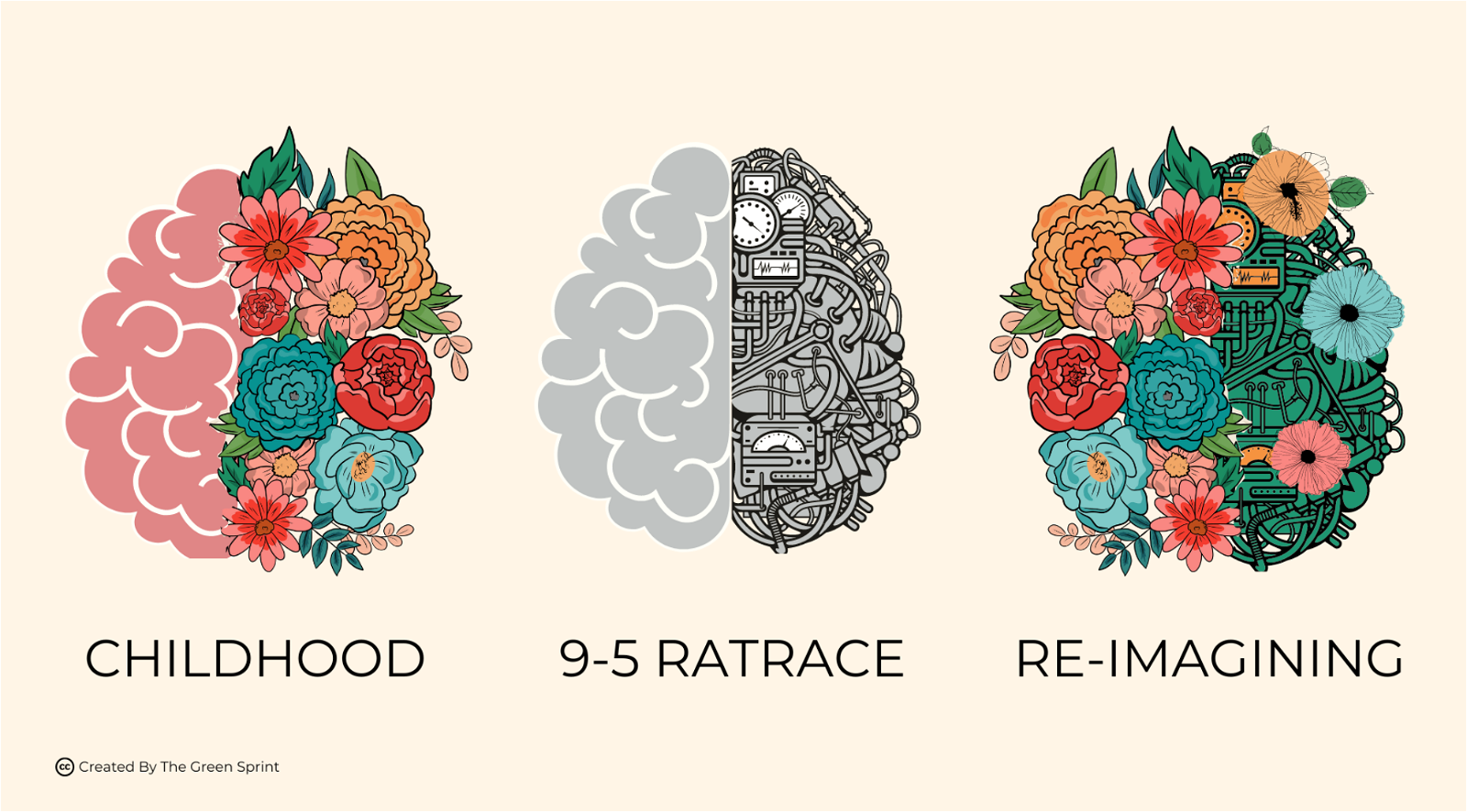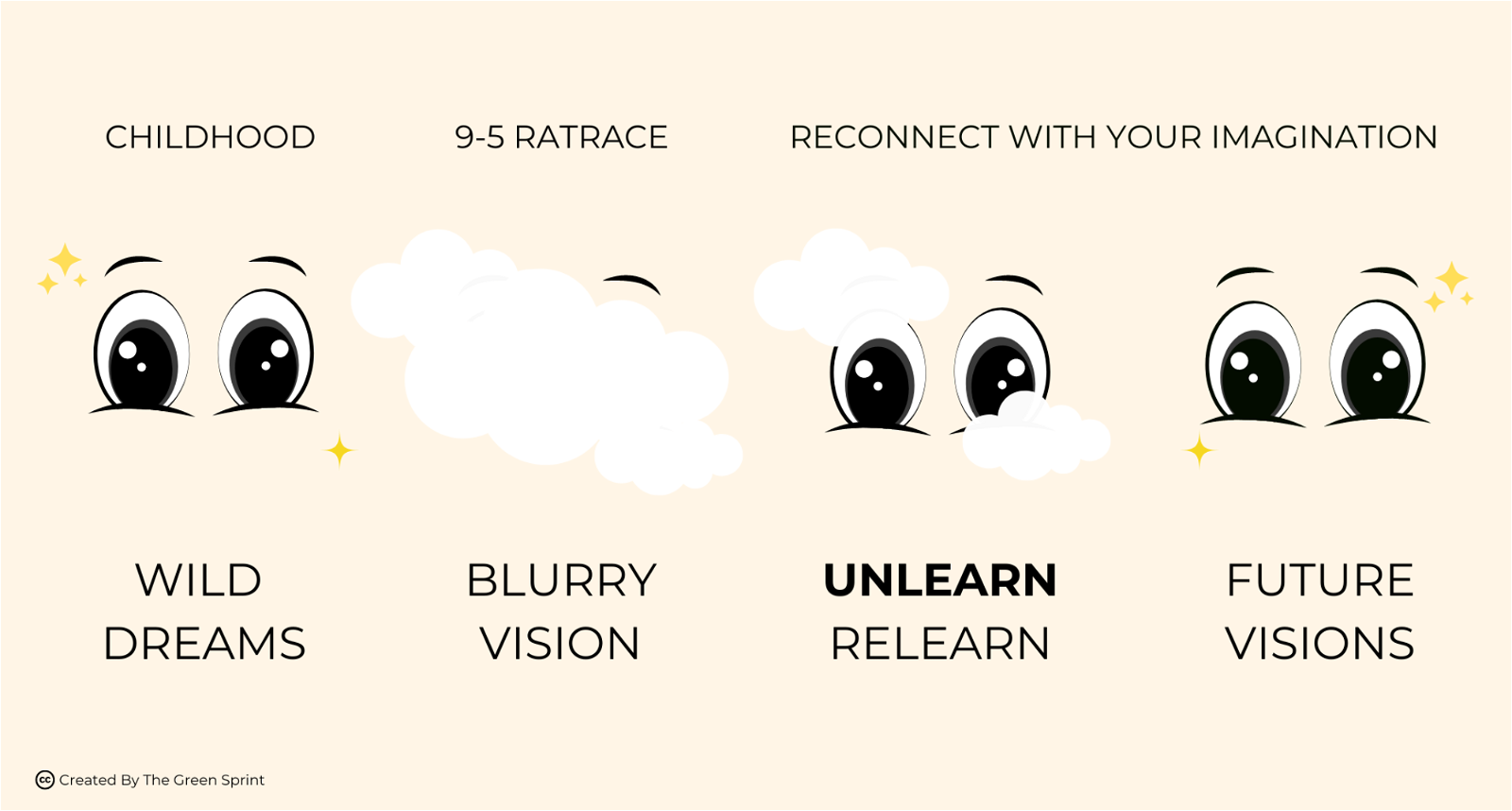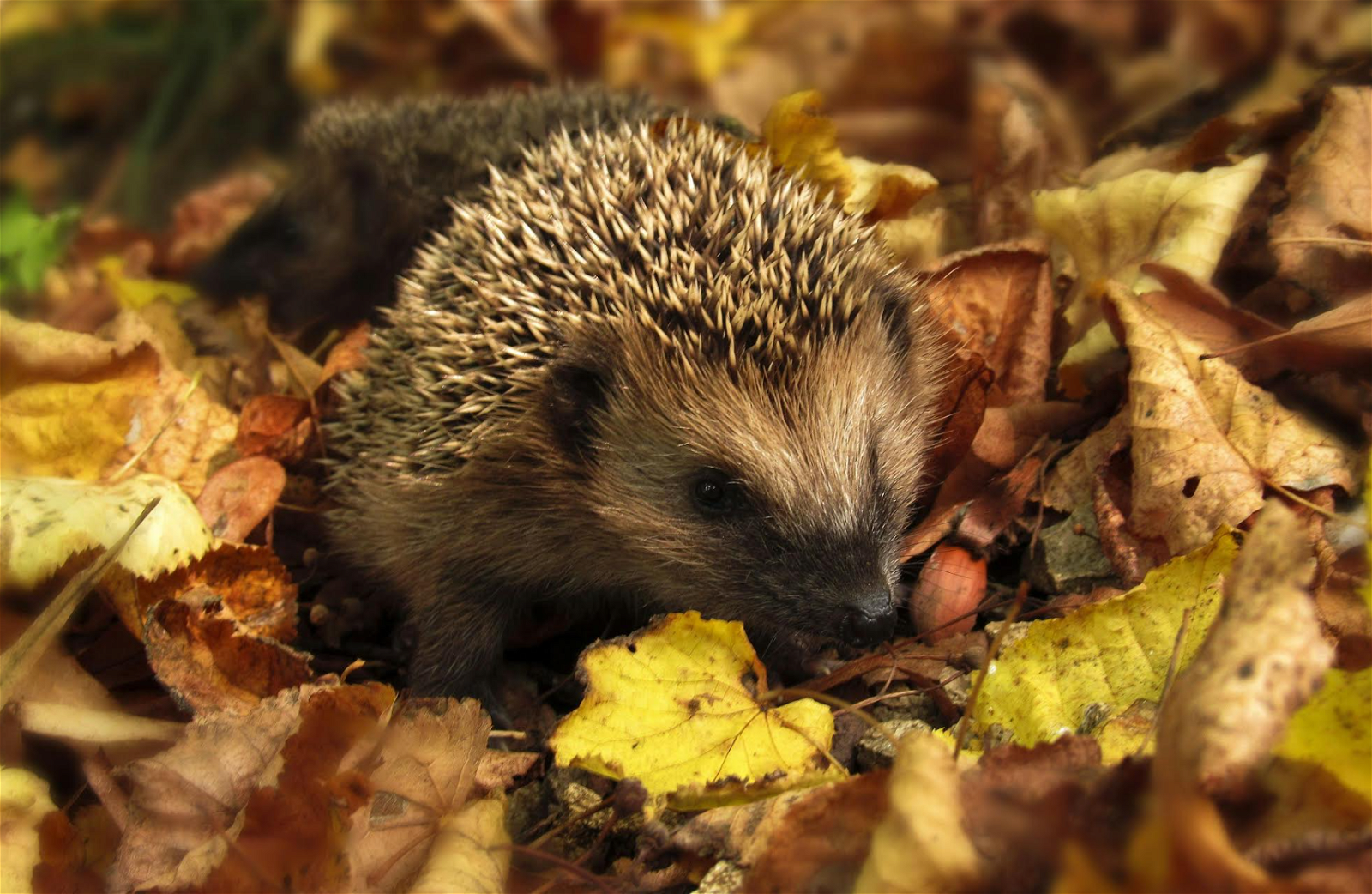Radical imagination for regenerative futures


· 8 min read
“Adults are bad at remembering how powerful they can be because somewhere along the line, they were shamed for their imagination.”
Stephen Chbosky
Sustainability doesn’t spring from spreadsheets. Our society is obsessed with rational, data-driven decision-making, under a false pretense of security and predictability. Within many organisations, this controlling mindset is pushed to the extreme, discouraging any form of play, wild imagination, or display of emotions.
This mindset leads to the idea that we can tackle climate change and approach sustainability in a predictable and carefully planned way. This approach contradicts and diminishes the intelligence of life. Spreadsheets won't shift horizons, imagination will.
Remember those long summer holidays as a kid with all the time and freedom to simply play, without being stifled by responsibilities, financial worries, and a corporate reputation to protect? Just playing for the sake of playing. The rat race is stifling our ability to stop and play; it’s blocking us from stopping what we are doing for long enough to come up with a truly better alternative. The transition to regenerative futures isn’t born in doing, but in stopping, reflecting, and playing, creating the space for new ideas to truly land.
Playing, just as doing absolutely nothing, is an act of resistance. It’s an act that opens up possibilities for thriveability, a curious mind and a million undiscovered futures. It’s time to unleash our imagination, art, crazy ideas, and unrealistic dreams; they are to be celebrated.

Imagination
"Every crisis is in part a storytelling crisis. This is as true of climate chaos as anything else. We are hemmed in by stories that prevent us from seeing, or believing in, or acting on the possibilities for change. Some are habits of mind, some are industry propaganda. Sometimes, the situation has changed but the stories haven’t, and people follow the old versions, like outdated maps, into dead ends." - Rebecca Solnit
Our survival hinges on ever changing narratives. Right now, we're in a collective imagination crisis, lacking in new tales, bold visions, and fresh viewpoints. Our society is evolving fast, but our stories can't keep up. The stories we collectively keep alive are shadows of a dying paradigm. To birth a new era of compassion, love, and connection, we need new stories that resonate. It's up to us, the people of today, to dream up and share stories that'll bring this new era to life.
In a world held hostage by complex and, more often than not, rigid, human-designed systems, our liberation lies in one of humans' most powerful and underestimated abilities: our ability to imagine.
Imagination comes in all forms and shapes. Utopian, Dystopian, Time-bound, Rebellious, Place-based, Dream-Based, Solarpunk, SciFi, Radical, human-centred, and more-than-human; the list continues as long as we can imagine. We owe it to the future to reconnect with our wildest imagination.

Unlearn & Imagine
Imagine what would happen if we stopped holding back our ideas because we are afraid they sound 'unrealistic'. What if we shared all ideas, even the ones that don't seem to fit into our current world? What if we allowed ourselves to sound unrealistic, childish, silly, dreamy? What if we rediscovered the power of thinking in WHAT IF not WHAT IS?
The possibilities of our imagination are far and wide. They are not limited to just the human realm. Our imagination gives us the ability to relate to more-than-human species, past and future generations. Let’s explore three levels of imagination; ego, eco, and seva.
To what extent do you allow yourself to imagine a drastically different world? Do you dare to re-imagine our economic system or even our society?
To me, the regenerative economy is the bat in the growth-oriented capitalist chicken coop. It provides space to search for drastic new ways of living together. How exactly will this look like? No one can truly predict.
I imagine a world in which societies are built around life. A world in which people, communities, businesses, and governments collaborate, and co-create values enabling the well-being of all beings on earth. A world in which we live to experience, dance, create, taste, move, and connect. A society in which people are more familiar with the names of plants than the names of brands. Where we compare ourselves, not to each other, but only to who we were the day before. Where we sense and prioritise life. In short, I imagine a world in which we as humans found our way back, to ourselves, to each other, and to all other forms of life.
Sounds unreasonable or a bit idealistic? Perhaps. But it is not impossible! We might not get there within this or the next couple of generations. The widespread belief that we as humans are incapable of co-creating regenerative, thriving, and inclusive societies doesn’t mean that it is impossible. It simply means our imagination is blocked.
To unblock our imagination we need to rediscover our capacity to play and question. Exploring what if questions in a playful setting is a powerful approach to break free from business-as-usual and shift horizons.
What if we embraced mother earth as our decision making compass?
What if love and compassion guided us through life?
What if all jobs in 2030 were jobs that regenerate the world?
What if we turned our parking lot into a space that enhances life and wellbeing?
What if all our offices and factories acted like a forest, sequestering carbon, purifying water, turning the sun into energy?
The denial of our creativity and the inability to look at the world through a wide range of more-than-human lenses fuels planetary degeneration. The world we inhabit isn't a static place. It means something different to any living being. No human ever reads the same book. Our lens, our perception shapes books, mountains, stories, relationships, and our role on earth. By changing our perception, we can change the world.
When following our ingrained thinking patterns, our top-of-mind imagination is framed by the lens of our humanness. By deepening our curiosity for the wider natural world and creating safe spaces through playfulness, we can expand our imagination to the more-than-human.
When I am facilitating a transition process, I love inviting people to reflect on it from the perspective of another species. You can try this at home or at your work; choose whatever species you are drawn to. One of my favourites is imagining being a hedgehog. First, we will navigate and look at the world for 10 minutes as we imagine a hedgehog would. What are the questions that come to you through the hedgehog lens? Which challenges are you encountering?
How does it feel to live in a world designed primarily for another species?
How do you navigate the world safely?
How do you build a home and take care of your family?
What’s going on with all those big scary murder machine’s (cars)?
Once comfortable in the hedgehog lens, we reflect on the project or question that we are working on. Truly immersing ourselves in the Hedgehog perspective snaps us out of our human-centred thinking and opens up limitless possibilities to explore other ways of doing and being.

Hedgehog - Photo By Monicore
“The planet does not want to be saved. Or rescued. Or even changed. Our planet wants to be loved. Love is not a game of numbers and spreadsheets, checks and balances, debts and contracts. It is an exalted dance of joy, respect, and gleeful mutual appreciation and true partnership.” Ed Gillispie
Seva imagination is born from a place of deep love and compassion. Seva is Sanskrit for “to serve” and is grounded in the devotion to serve from the heart. This form of imagining is completely decoupled from spreadsheets and KPIs. It is grounded in the love all beings have for life on earth. Seva isn’t a static place; it’s a relationship that deserves constant care and attention. Seva imagination is strongest when people who (un)learned the constraints of business as usual and truly connected to life come together to imagine radically different futures.
In the transitions towards regenerative futures, we must liberate our imagination from the confines of rationality and embrace boundless creativity. By rediscovering the power of play and daring to envision bold new possibilities, we can pave the way for a world where compassion and connection thrive. Through ego, eco, and seva-imagination, we can explore new narratives and paradigms, birthing a future where love for all life on Earth guides our actions. Let us embrace this radical imagination as the key to building a truly sustainable and flourishing world.
Future Thought Leaders is a democratic space presenting the thoughts and opinions of rising Sustainability & Energy writers, their opinions do not necessarily represent those of illuminem.
illuminem briefings

Sustainable Lifestyle · Social Responsibility
illuminem briefings

Social Responsibility · Sustainable Lifestyle
illuminem briefings

Biodiversity · Sustainable Lifestyle
BBC

Biodiversity · Climate Change
The Irish News

Diversity & Inclusion · Entertainment
rfi

Climate Change · Art